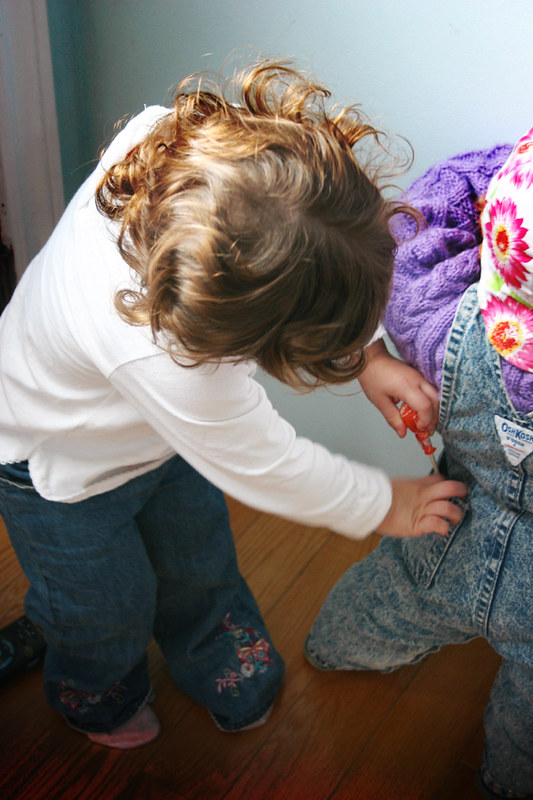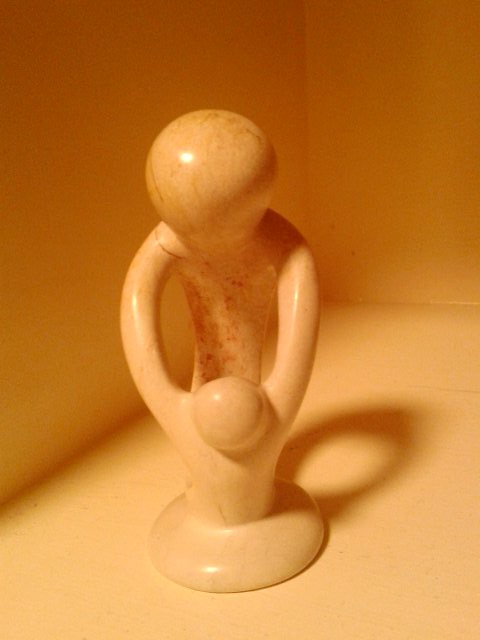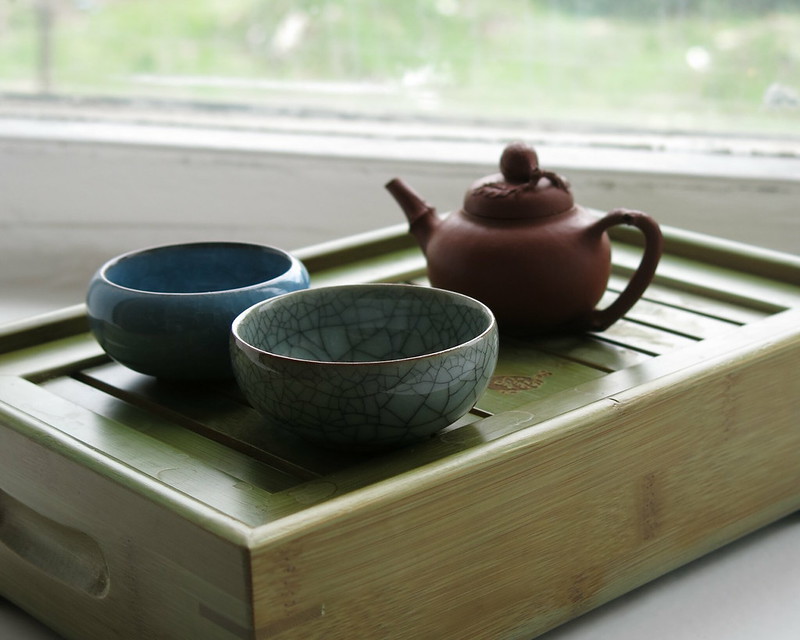
TO YOURSELF BE KIND (Another IPS)
One day I happened to overhear a good friend of mine – one of the most generous and selflessly giving people I know – beating up on herself unmercifully.
She was spazzing about how she had fallen down off her (very high) standards-of-conduct bar because she had not stopped to listen (yet again) to a high-maintenance friend’s continuing saga about how everybody was picking on her and how not-right everything in her life was.

She stopped in mid-imprecation and stared at me.
I told her, “What? Do ya want me to beat you up? Pfui! Nobody talks to my sistah like that!”
She was surprised at my intervention.
We talked some and I think, maybe, she went away feeling better. I do hope so.

WHY ARE THE GOOD ONES ALWAYS SO HARD ON THEMSELVES?
Does it seem to you (as it does to me) that very often good people who are exceptionally accepting and tolerant of other people’s foibles and flaws are really, really hard on themselves?
They wear themselves out being generous and overflowing with human kindness for other people, but they are absolutely rigid in their intolerance of their own fallible selves.
They seem to forget that they, too, are human and they, too, need to be tolerated, accepted and loved even when they don’t do things exactly “right,” and even when they’ve made some egregious mistake or other.
Sometimes it feels like they’re bucking for sainthood or something. Self-flagellation, anyone?
I don’t know.
Maybe it’s because they think that if they do let up on themselves and give themselves a break, they’ll swoosh down some monstrous slippery slide into chronic, gross negligence and turn into massive, unworthy slobs who zombie out and never do ANYTHING in their lives.

Maybe it’s just that they don’t know HOW to be caring and kind to themselves. It’s not something we’re taught as youngsters.
As a kid, it did seem to me that the Bigs in my life were bent on toning down my admittedly emphatic desire-body. I was really sure I knew, knew, KNEW what I wanted as a kid…well, at least in five-minute stretches I did, anyway.
The Bigs in my life did harp on that and I got a lot of “instruction” (also known as spankings) for being such an extravagantly sure desire-demon.
However, the Bigs in my life also showed me that they loved me to pieces and that they appreciated me as the PITA (Pain In The Anatomy) that I was. Sometimes I even managed to do them proud.

THE POWER OF SELF-COMPASSION
Human behavior researcher Kristin Neff is an associate professor in Human Development and Culture at the University of Texas at Austin.
When she was at graduate school in 1997 she began practicing meditation in the Buddhist Insight Meditation tradition. Because of her practice she decided to conduct research on the Buddhist concept of “self-compassion” during her doctoral work.
One result of that work was a best-selling, seminal book, SELF-COMPASSION: The Proven Power of Being Kind to Yourself.
Personally, I enjoyed her taking the time to unpack the concept of self-compassion, and pointing out how it differs from the better-known “self-esteem” concept with which those of us who are into the whole self-improvement project get bombarded.
Neff says that in the long run, self-compassion is more effective than self-esteem as a means for motivating yourself to do stuff because self-compassion is based on our “scientifically proven” human need for acceptance and affection while self-esteem is a more conditional sort of stance that’s based on a fear of failure and a fear of other people’s possible disappointment in you.
When you are compassionate toward yourself you are like a solid friend. You back yourself up 100% — even during the times you screw up. And because you’re a good friend to yourself, it’s way more likely that when you fall down you’ll be willing and able to stand up and try again.

How many times does that have to happen before you lose the desire to stand back up and take it on the chin again?

The Greater Good Science Center is located at the University of California, Berkeley. Founded in 2001, the guys in white lab coats study the psychology, sociology and neuroscience of well-being there.
AND THEN THERE ARE THESE COURSES
This next YouTube video, “The Power of Self-Compassion | Kristin Neff and Chris Germer” was published in 2017 by Sounds True, a multi-media company that grew out of a project by one woman, Tami Simon, using her tape recorder.
Simon’s dream to “disseminate spiritual wisdom” grew into a company with more than 80 employees and a wide range of projects.
The video is a moving piece that documents the answers from various Sounds True workers to a series of questions designed to introduce the idea of self-compassion.
It is also an introduction to an ongoing online course, The Power of Self-Compassion, put together by Sounds True in partnership with Neff and clinical psychologist Christopher Germer, a leading clinical psychologist specializing in integrating meditation techniques and principles with psychotherapy.
For more information about the Mindful Self-Compassion Center that the two scientists founded as well as the array of the online courses it offers, click on the button below:

Another IPS (Inner Peace Symptom): a disinclination to continue flogging yourself for not measuring up to some high-flying standard or other. [It really HURTS! Ouch! Ouch! Ouch!]
A COUPLE OF SELF-COMPASSION LIFE-HACKS
Even if you’re not a dyed-in-wool dedicated self-improvement addict, you too can benefit from a little self-compassion in your everyday ordinary life.
You probably already know a bit about how to be a good friend to others. So, maybe you can use that knowledge to start developing a more loving and accepting relationship with your own self.
- Ask yourself how you talk to a friend who is down. Remember how you helped them start to stand up again. Could you maybe do that for your own self?
- Ask yourself how you treat a friend who is beside themselves and upset. Remember how you calmed them down? Remember how you offered your support if they needed it? Could you do that one for your own self?
- Ask yourself what you did to defend your friend against detractors or other not-friends. Could you do that for yourself?
- Ask yourself how you have helped your friend celebrate one of their successes – big or small. Could you do that for yourself?
I bet you can think of many different ways to be a better friend to yourself.

In his later years, the Stoic philosopher and wise guy Seneca the Younger worked for the Roman Emperor Nero for more than 10 years. He lived to retire.
During his retirement, Seneca wrote a series of “Moral Epistles and Letters” to Lucilius, who was then the Procurator of Sicily, a high official in ancient Rome.
Lucilius was famous because when he was a young officer in the Roman army he was the decoy that succeeded in helping his general Brutus escape capture by Antony’s army. Shakespeare made him a minor character in his play Julius Ceasar.
Lucilius went on to become a philosopher and a politician in his own right after his army stint. He was also a very prolific writer.
In one of his many letters to his fellow philosopher, the retired Seneca talked about how he was still working, even then, on how to be a friend to himself. The guy made a major point of practicing harsh disciplines – embracing poverty and asceticisms of all sorts including diving into freezing rivers and stuff like that – and he was still working on learning how to be kind to himself.
Obviously, this thing is a lifetime project.

We all know the Golden Rule. It tells us to “Do unto others as you would have others do unto you.”
To turn the Golden Rule on its head, think about the kindnesses and heartful moves others have done for you. How did they make you feel? Pretty good, huh?
Sometimes a simple kindness can turn our whole day around.
So, whenever somebody does something that makes you feel good, think about how you can use that move to bring your spirits up when you need it.
When you are feeling down, offer up one of these simple kindnesses to yourself. I bet it’ll make you feel good.

Every time, the fragrance and beauty of those flowers lifted me up.
David and his wife are gone now. But, whenever I need an uplift, I still make myself a lei pua kenikeni from the flowers that bloom on the bush that is in my yard. It reminds me of that beautiful couple and their kind regard for me.
The lei helps remind me that I am worthy of goodwill…and that is a good thing.

JUST FOR A LITTLE WHILE
Maybe just for a little while
I’ve gone past fright.
Maybe just for a little while
I’m feeling just right.
Maybe just for a little while
I can sit and let it be.
Maybe just for a little while
I can enjoy me.
Maybe just for a little while
I can leave the world alone.
Maybe just for a little while,
I’ll just sit at home.
Maybe just for a little while,
I can stop the dreams and schemes.
Maybe just for a little while
I won’t rant and scream.
Maybe just for a little while
I can be strong.
Maybe just for a little while
I can think it won’t be long.
Maybe…
Just for a little while.
By Netta Kanoho
Header photo credit: “West Maui Mountain Sunrise” by BirdsEye Pix via Flickr [CC BY-SA 2.0]
……
SOME OTHER POSTS TO EXPLORE:
(Click on each of the post titles below and see where it takes you…)
- CHOOSE YOUR DELUSION WELL (Another IPS)
- WHICH SELF? (Another Un-Seeing Exercise)
- CHECK YOUR FILTERS: Roadmaps and Story
……
Thanks for your visit. I’d appreciate it if you would drop a note or comment below and tell me your thoughts
12 thoughts on “TO YOURSELF BE KIND (Another IPS)”
Hello,
This was an interesting article. You write well and clearly.
The concept of being kind to yourself is often forgotten in today’s world.
Yet it is so important.
So often we look after other people but not ourselves.
Your article was a useful reminder so thank you for publishing it.
The photographs were a nice touch.
Best wishes,
Cameron
Cameron, thanks for your visit and for sharing your thoughts.
I’m glad you noticed the images. I do try to turn them into a relevant collage sort of thing that tells its own story as well. (I like layering things. It’s the assemblage artist in me, I suppose.)
Please do come again.
This is such a great topic to bring up. I am like that as well with myself. I tend to put a lot of pressure on myself and when I did not do a good enough job, I beat myself up. I am my worst critic. Good for you that you standing up for your friend!
I think all the good ones are so hard on themselves is probably from what they perceived from their parents when they were young. Just my assumption, because for me, my mother always put others first and also give herself a hard time.
Thank you for sharing the video on self-compassion. Thanks for sharing the hacks as well! I can start practicing that one day at a time. Love your poem as always 🙂
Nuttanee, welcome back. I’m so glad you found the post helpful.
I agree that probably we tend to use the people who raised us as our role-models. I had so many role models growing up that I really was able to pick and choose which ones I actually wanted to follow.
When all the Bigs around you are doing different things and giving you a ton of advice on how to walk their way, you sort of figure that the game is wide open. You can pick and choose your own style.
(I am aware that I was really lucky that way…even though it sure didn’t feel like it when I was growing up. I come from a long line of people with very strong opinions. Maybe that’s why I’m still confused!)
Please do come again.
Maybe just for a little while you say.
Maybe just for a little while I’ll stay.
Maybe just for a little while I’ll say:
I like to think that whether it’s good or not that’s where good people come from. More often is the case that people who are good at being good to their selves tend to lead to sanctimonious, self righteousness. People who have a firm leash on themselves tend to be more self correcting even if at times it takes them to far.
Like lego blocks that connect and interconnect in so many different ways. Being kind to others is linking to them. Having a good person linked to you completes the cycle. Synergy. “No man unto himself and island.”
We who are good stand back-to-back for if we do not watch each other’s backs we will surely be attacked.
Protect each other from our inner demons and with that union life will bring new meaning.
I will smile for you when you cannot smile for yourself. You will put my fears away on a shelf. We will build each other up and for ever drink from heaven’s cup. And never let our self doubts run amok.
Maybe just for a little while I read.
Maybe just for a little while I thought.
But, maybe just for a little while I said too much…..
James, thanks for your visit and for sharing your thoughts.
I love your take on the poem. Cool!
It’s been my own experience that the sanctimonious, self-righteous ones tend to have a harder time being easy with uncertainty and ambiguous situations that can turn either way.
They like surety and security and other stuff like that, which gets sort of hard to maintain in a world where entropy and impermanence rule and change is the only constant.
It also seems to me that these ones prefer being surrounded by people who are walking just like them because it’s just more comfortable for them that way.
A wise old friend once told me that everybody carries around a “yes” book and a “no” book. He said we probably got the starts of them from the Bigs around us when we were just little tykes.
We place the different things we encounter in the world into these books and then lug them around with us wherever we go, using them as references and guidebooks, I suppose.
The ones with big “no” books and little “yes” books are very easy to offend. They seem to walk around being angry a lot and, for real, that is what all the sanctimony and superiority and I-am-right is…just another kind of angry, just another fence to block off the world.
The world is a lot unsatisfactory to them, it seems to me.
My biggest problem with them is that they have this really annoying tendency to want to convince all the other folks in the world that their way of walking is the one, only, and best way.
There are, I think, as many ways of walking as there are people in the world.
I think everybody has their own vulnerabilities, their own demons, and their own weaknesses. Everyone has obstacles and challenges in their life as well as many strengths.
We all work them out in our own way. Some ways work great; other ways not so much.
Self-discipline and paying attention is a given, I agree. Otherwise, there’s a tendency to drift off into the ethers and to end up lost someplace you’d rather not be.
Being kind to yourself and taking care of your own needs is not the same as being self-indulgent. It’s not about spoiling yourself! It’s about treating yourself with as much respect as you treat the other people in your life.
Taking responsibility for your own actions and your own responses to the circumstances in your life is also a given, it seems to me, since those are really the only things any one of us humans can control anyhow.
Everyone of us is just too little to be lugging around other people’s baggage. (We have a hard enough time dealing with our own.)
Making connections and building relationships and communities does build synergy and help things flow better for everybody, I agree. We can make room for each other in our lives and it does get to be a whole bunch of fun when we do it that way.
There is evil in the world, just as there is a lot of darkness. Sometimes we have to face it down; sometimes it can get overwhelming.
However, there is also a lot of light in the world as well. Sometimes we can encourage, foster, and keep that light growing and help each other keep it strong.
My own feeling is that by shining up our own little bit of the world and encouraging and helping each other to shine up the other little bits usually results in a shinier place for us all.
The heartful ones in my life tend to have very big “yes” books and smaller “no” books. The details in their books vary greatly, but each one seems to trust that the world is as it is and the people around them are just walking each other home the best way they know how.
They trust that they, themselves, will be able to handle whatever comes to them with at least a modicum of grace.
Whew! Thanks for opening up my head, James.
Please do come again.
Thank for your very interesting blog. Yes, it is most important to be kind to yourself! I completely agree.
I completely agree with you when you say in your paragraph entitled: “WHY ARE THE GOOD ONES ALWAYS SO HARD ON THEMSELVES?” Yes, it does seem to me that “very often good people who are exceptionally accepting and tolerant of other people’s flaws are really hard on themselves”. That’s the story of my life!
Why is that? Why are we perfectionists always so hard on ourselves? When we reach a “plateau” of goodness, we immediately set a goal for ourselves that’s a few noches above the last one! Either it’s an excess of pride, or we’re really suckers for punishment!
Where is it written that we have to be perfect?
I completely agree with your statement that we perfectionists wear ourselves out being generous and overflowing with human kindness for other people, but are absolutely rigid in our intolerance of our own fallible selves.
I’m immediately going to buy Kristin Neff’s book on “SELF-COMPASSION: The Proven Power of Being Kind to Yourself.” I can’t wait to read it. I need to know more about the Buddhist concept of self-compassion.
Thanks again for a great article!
Monique, thank you for your visit and for sharing your thoughts. Your enthusiasm does make me smile!
Please do come again….
I think you are right. Being a good person is difficult — not supporting the wickedness of others and asking forgiveness when you are wrong.
All of this is true where the importance of the POWER OF SELF-COMPASSION comes from. After it becomes a habit, let’s hope we only meet people who have the same power.
I wish you a pleasant day
Omama, I think that being kind to yourself does help you maintain kindness towards others as well.
It is unlikely that every other person we meet is going to have the same point of view as we do or behave in ways that are mostly similar to our own ways of acting, but the habit of kindness towards ourselves and others does seem to help us get through most situations we encounter gracefully.
Myself, I think that is a good thing.
Please do come again.
Wow, this was quite an exposition and a well-thought-out and presented article! I really enjoyed the read, although I do think I will have to come back and read through it again a few times. I have the feeling that with each visit I will gain some new insights.
The poem at the end wrapped the article up nicely. Such simple prose, yet so meaningful, especially in light of the article preceding it. You have put a lot of thought into this, I can see that…Commendable! The videos are also fitting, and I have also added them all to my watch list on my YouTube channel.
My background is in psychology, among other things, so I can relate to the point(s) you bring out – both from the educational side and the personal experience side. As I was reading through, I could not help but think of my grandmother, who spent decades worrying about her kids, grandkids, and great-grandkids.
It seems she never had much time to worry about her own condition, but really seemed not to need to. She completed a college degree at 70 and went on to teach as a substitute teacher for a few years. That was the one luxury she allowed herself, the rest was all others.
Thanks for your effort in putting this together, and as stated, I will be back for more of this post and to have a look at some of the other posts that are I am sure just as provocative! You have a real talent for this and I am sure that you could publish a book that would be a bestseller! Good luck with that if you decide to go in that direction!
Dave, thank you for your visit, your kind words and for sharing your story. Your grandmother sounds like an amazing woman!
Please do come again.